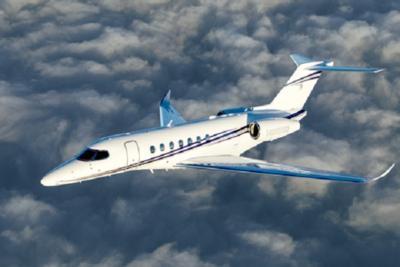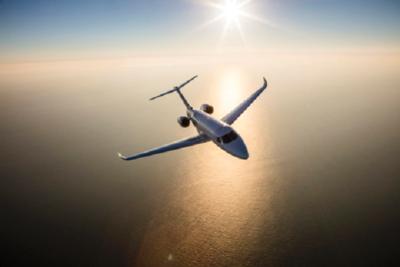Viva La Textron
Textron Inc., the Providence, Rhode Island-based conglomerate and parent company of Cessna, Beechcraft, Hawker, Bell Helicopter, Lycoming Engines, and Pipistrel, announced on 06 July 2023 that it had delivered the first Mexican-registered Cessna Citation Longitude business jet.

Subject aircraft received certification from the Mexican Federal Civil Aviation Agency (AFAC) in 2022, and will henceforth support business travel throughout Mexico and North America.
Textron Aviation senior vice-president of Global Sales and Flight Operations Lannie O’Banion stated: “The Citation Longitude’s performance, efficiency and unrivaled cabin experience make it the perfect aircraft for passengers and pilots alike, and we are pleased to deliver this for our customers in Mexico.”
Mr. O’Banion added: “We’re grateful for the owners and operators who continue to choose Citation business jets for their business and personal travel, and to the extraordinary Textron Aviation workforce that designs, builds and maintains our legendary lineup of aircraft.”
Announced at 2012’s EBACE convention and FAA type-certified in 2019, Cessna’s Citation Longitude is a super-midsize business aircraft comprising design cues from numerous and proven Textron aircraft models. An evolution of Cessna’s Latitude business jet, with which it shares a fuselage cross-section, the Longitude sports new 28° swept wings incorporating moderate winglets, a T-tail empennage, and area-rule fuselage contouring. All told, the Longitude’s aluminum fuselage and wing are similar to those of the Hawker 4000—albeit longer and of greater span respectively.
The Citation Longitude’s design makes use of numerous up-to-the-minute technologies such as redundant integrated autopilot and auto-throttle systems with emergency descent mode (EDM). The aircraft is powered by a pair of FADEC-equipped Honeywell HTF7700L turbofans each producing 7,665 lbf-thrust. So motivated, the Longitude manages a Vne of 560-knot (0.84 Mach), a cruise speed of 483-knots (0.72 Mach), an unrefueled range of 3,500-nautical-miles, and a service-ceiling of FL450.
Longitude operators benefit from the model’s on-condition engine overhaul periods and best-in-class 18-months/800-hours (whichever occurs first) airframe service intervals. Textron Aviation's full-time diagnostics recording system (AReS) and 3D technical publications significantly reduce maintenance downtime and overall operating costs.
Cessna’s Citation Longitude is a moderately large aircraft, the fuselage of which measures 73-feet, two-inches in length; six-feet high; and six-feet, five-inches wide. The Longitude’s semi-super-critical wing spans 68-feet, 11-inches.

Type-certified for two-pilot operation, the Longitude may be configured to comfortably accommodate eight (standard) to 12 (maximum) passengers. The aircraft’s 39,500-pound Maximum Gross Take-Off Weight (MGTOW) includes 14,500-pounds of fuel and a full-fuel payload of 1,600-pounds. The Longitude’s spacious, 112-cubic-foot walk-in baggage compartment is in-flight accessible and has a capacity of 1,115-pounds.
At its service-ceiling, the Longitude’s pressurization system maintains a comfortable 4,950-foot cabin.
The Citation Longitude features Garmin’s G5000 Flight-Deck, which offers pilots complete touchscreen control of the aircraft’s navigation and communication systems. The avionics suite includes a trio of large, high-resolution LCD displays; four touchscreen controllers; Garmin Synthetic Vision Technology (SVT); synoptics for key systems; in-flight diagnostics reporting; fully-integrated auto-throttles; Required Navigation Performance Authorization Required (RNP AR) to 0.3-nautical-miles; ADS-B Out/In; and optional FANS 1/A and Link 2000+ CPDLC capabilities.
 NTSB Final Report: Rutan Long-EZ
NTSB Final Report: Rutan Long-EZ ANN FAQ: Turn On Post Notifications
ANN FAQ: Turn On Post Notifications Classic Aero-TV: ICAS Perspectives - Advice for New Air Show Performers
Classic Aero-TV: ICAS Perspectives - Advice for New Air Show Performers ANN's Daily Aero-Linx (06.28.25)
ANN's Daily Aero-Linx (06.28.25) Aero-News: Quote of the Day (06.28.25)
Aero-News: Quote of the Day (06.28.25)




